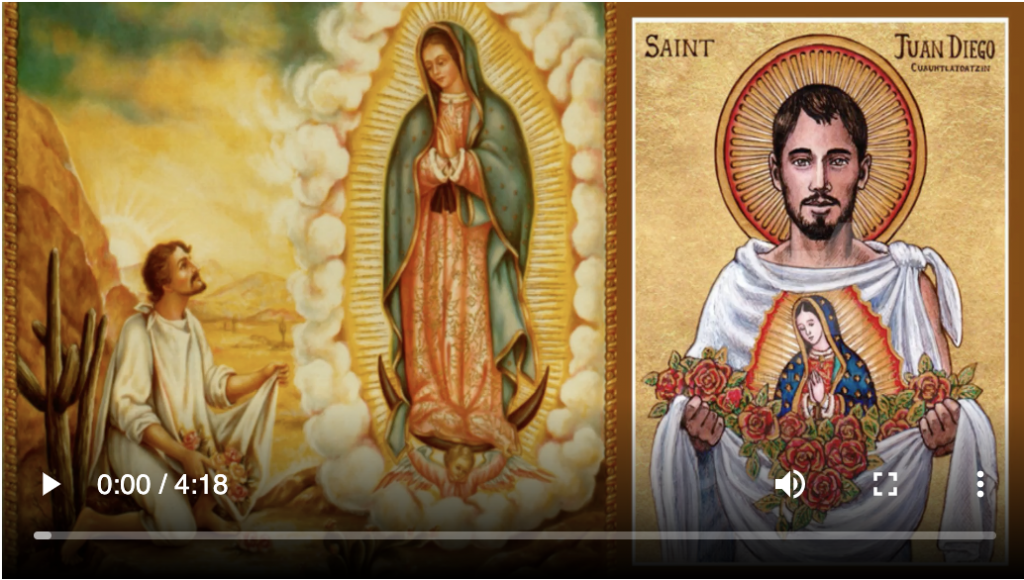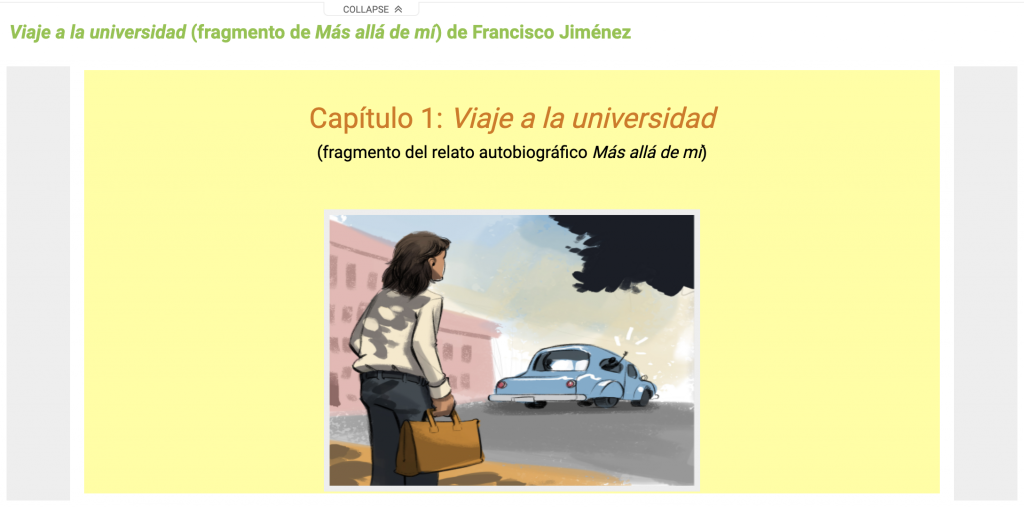SPAN 202
Interpretive, Interpersonal, and Presentational Modes of Communication
Instructions
Exploring Culture
Writing about a custom/tradition in the Spanish-speaking world for
Project 21-1 on Contraseña helped me understand different cultural perspectives. It emphasized the focus on family and communities within Mexico. In America, it’s more every man for himself. I admired their strength and clinging to their beliefs even when Spain conquered them. I’d always heard/assumed that they were Catholic because of Spain, but to know that they have their own story behind their conversion to monotheism makes their story even more powerful. It involved them all coming together and making a decision which shows their determination and unwillingness to be crushed by Spain. This changed my view on the world because it made me recognize the effect of colonization on civilizations and stereotypes of people and how the person in control has the power to write the narrative in a way that makes them look better than the one crushed at his feet. I had to open my eyes to the truth behind some of the stereotypes we regularly hear about Spanish-speaking people and try to unlearn what I’ve heard or learned over the years, like about them being lazy or poor. Because now I’m aware of who’s pushing this narrative and why (for control and power). So I want to work toward not holding these ideas in my head when I think of them because this is what the media pushes, and they are wrong.
Engaging in Communities
Engaging in our immediate communities is essential because we have to start with smaller steps locally to create a significant change. I like to try and participate in things with children during the summer and things in education because I know that our school systems are lacking as a future educator. And for things to change, we have to move around and make more people aware of the disadvantages for children of color within school systems set up to primarily focus on the achievements of white people while brushing under the mat the various accomplishments of people of color. This is why I decided to create a video for my class that solely discussed the spirit-murdering of Black and Brown children with some of my classmates because many white people don’t know that this is a frequent problem in schools, even in their classrooms. So I wanted to use my experiences to shed light on this because it is a problem within schools. Racism doesn’t stop at the doors, and it’s built within our school systems as a whole, so I’m going to keep bringing it to the light no matter what. Everyone deserves a safe place to learn.
Interpersonal Communication
A great example of interpersonal communication we’ve completed this semester would be a simulated conversation I had with Phoebe for Conversar 17-9B on Contraseña. Which required me to listen, respond and ask questions about stereotypes. I like it better than face-to-face or TalkAbroad because it gives me time to think and put my thoughts together. And it forced me to learn more about stereotypes and how inaccurate and silly they are.
We had TalkAbroad conversations, but I’d always forget to schedule them before they were due or because I’m not used to a calendar being so overwhelming and not straight to the point. We did frequently participate in conversations within the classroom based on the material. It wasn’t easy when it was stereotypes and traditions that I wouldn’t usually talk about in English and trying to find the words I was trying to say in Spanish. So I often had to slow down and look up words or phrases I didn’t understand for clarity. Usually, when I don’t understand something in another language, I shrug it off and move on, but I wanted to understand it more, so I chose to either ask one of my friends in the class or look it up. So next time, I won’t be so quick to give up.
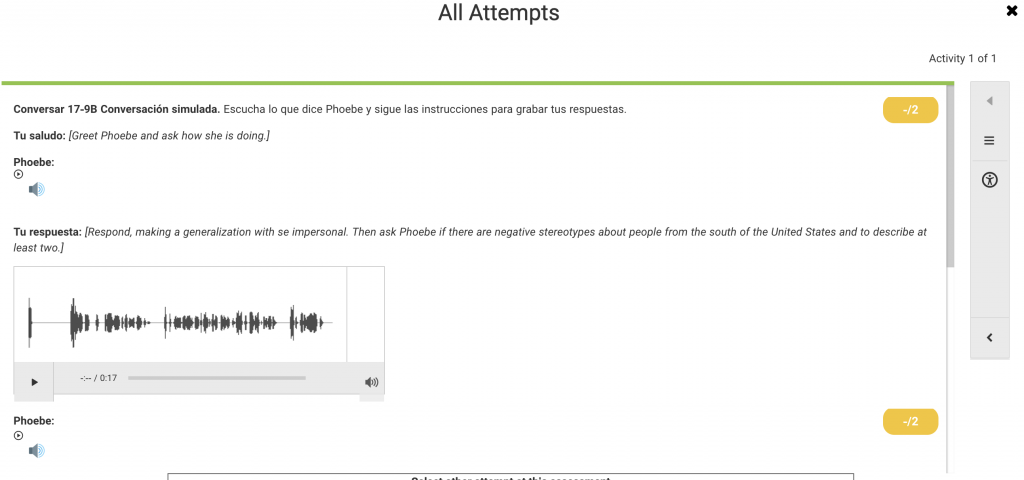
Presentational Speaking
A great example of presentational speaking we’ve completed within this class is our project for 19-1. In this project, we talked about a transformational moment in our lives.
I feel like I’m good at writing in Spanish, but my Achilles heel is speaking. When I write things down, I can see what’s wrong visually and correct it, but it’s not as forgiving if I talk. I spend a lot of time worrying about getting everything right, like the conjugations and the words, so I limit what I say to avoid messing up. I overcame this challenge by brainstorming and having a rough idea or outline of what I wanted to say beforehand, and writing it out as I went. This eliminated some of the anxiety I had about speaking in another language. So next time I talk in general about a project, I know that I work best when I write things out beforehand so that I’m not all over the place.
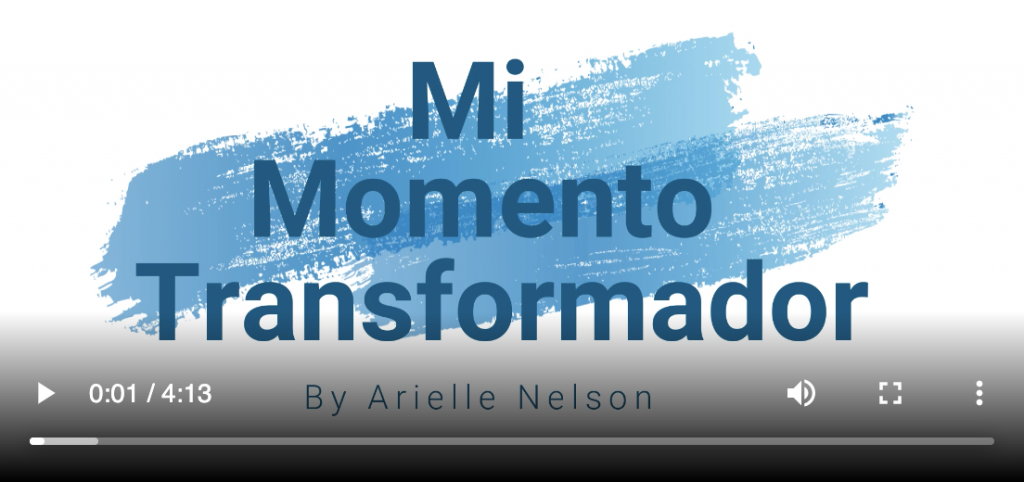
Presentational Writing
For presentational writing this semester, we completed a series of written compositions for each project. An example of one of these compositions would be our paper where we talked about stereotypes in Project 17 Paso 2.
I grew in this assignment because it required adding more words and phrases to my vocabulary. After all, I had no idea where to start when talking about stereotypes in a language different from my native tongue. The easiest part was knowing what to say in English, and the hardest was not knowing what to say in Spanish, so I had to break down what I wanted to say and look up the proper verbs and nouns. I was good at writing down the typical stereotypes, but it got tricky when it came down to identifying and explaining where the stereotypes come from and how to combat them. I would’ve been better prepared if we had more vocabulary and background on stereotypes because I didn’t know where to start or how to say things like “black people” and “white people” in Spanish.
Interpretive Listening
A phenomenal example of interpretive listening was when we listened to Nuyorican Tales, a poem by J. F. Seary telling the tale of Puerto Ricans living in New York. A poem dedicated to her mother.
I’m not sure if I’m blending semesters with my memory, but I remember hearing different people talk about art, culture, and food throughout the semester. I remember one poem I chose to read about a mother who was close to her family before moving to the United States. But she felt her children shifting further away from her because they were learning English, and she could only speak Spanish, so she felt left out because she couldn’t understand them. The other poem I remembered or gained something from was the “Nuyorican Tales” poem we heard in class. Now for this poem, some of the words in Spanish were a little hard to follow, but it was honestly not a very difficult read because it flipped back and forth between English and Spanish. So I used my dictionary and my context clues.
I feel like hearing and seeing the poem made me like it even more because often when I just hear or read Spanish, I either don’t gain anything from it or connect the words to the sounds. So having the poem right in front of me allowed me to go back and look over the terms I didn’t understand instead of just getting stuck and failing to retain the information. The most exciting thing about it was how they didn’t distance themselves from their culture. They embraced and built upon it. I’ve grown more being able to hear because hearing things like music and things read aloud makes it easier for me to receive the information over just reading it for myself (especially if it’s in a different language). And I’ve become more open-minded to listening to things in Spanish and finding a way to understand them.
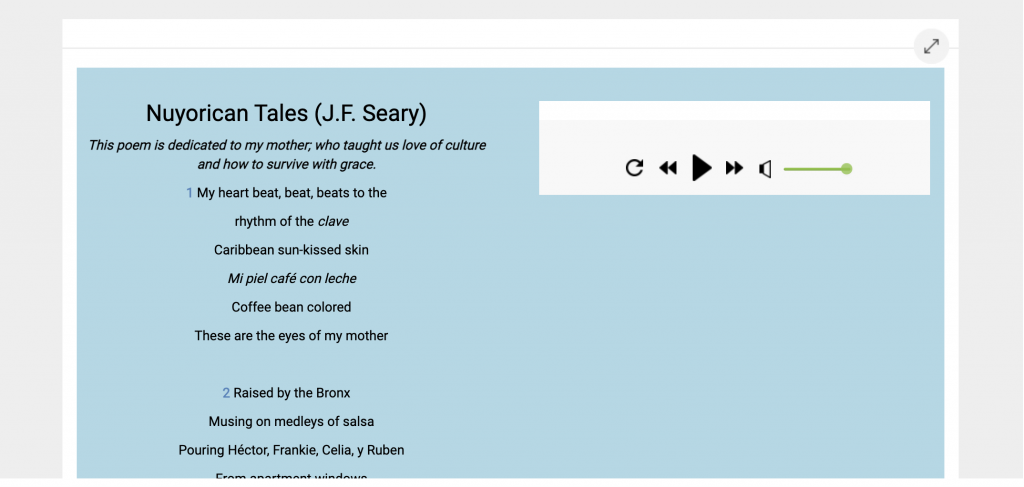
It was within U18.
Interpretive Reading
So throughout this semester, we have read things about other cultures and experiences. What first comes to mind is when we read “Viaje a la Universidad” by Francisco Jiménez. It was the story of Francisco’s trip to college and told of how challenging it was for his family to compare themselves to the other college students and their parents, from their clothes down to their car.
Reading his story was a little tricky because some words and phrases were way out of my vocabulary range. So I combated this by looking things up that I didn’t understand. The most intriguing thing about it all was that I had never heard from the perspective of an immigrant going to college. The first day is always stressful because of the worry of standing in line and knowing where to go. But he and his family felt so out of place because they didn’t look like everyone else, and they were embarrassed. And I know that feeling oh too well. My biggest takeaway is that you have to be aware of others’ comfort and that it’s best to help your family no matter what. Who cares if you aren’t dressed to the nines like everyone else. I’m sure he was uncomfortable and nervous, and that’s when he needed his family most. I’ve grown with each assignment by trying to take at least one thing or message away from everything I’ve read, even if it’s something that isn’t significant to everyone else.
